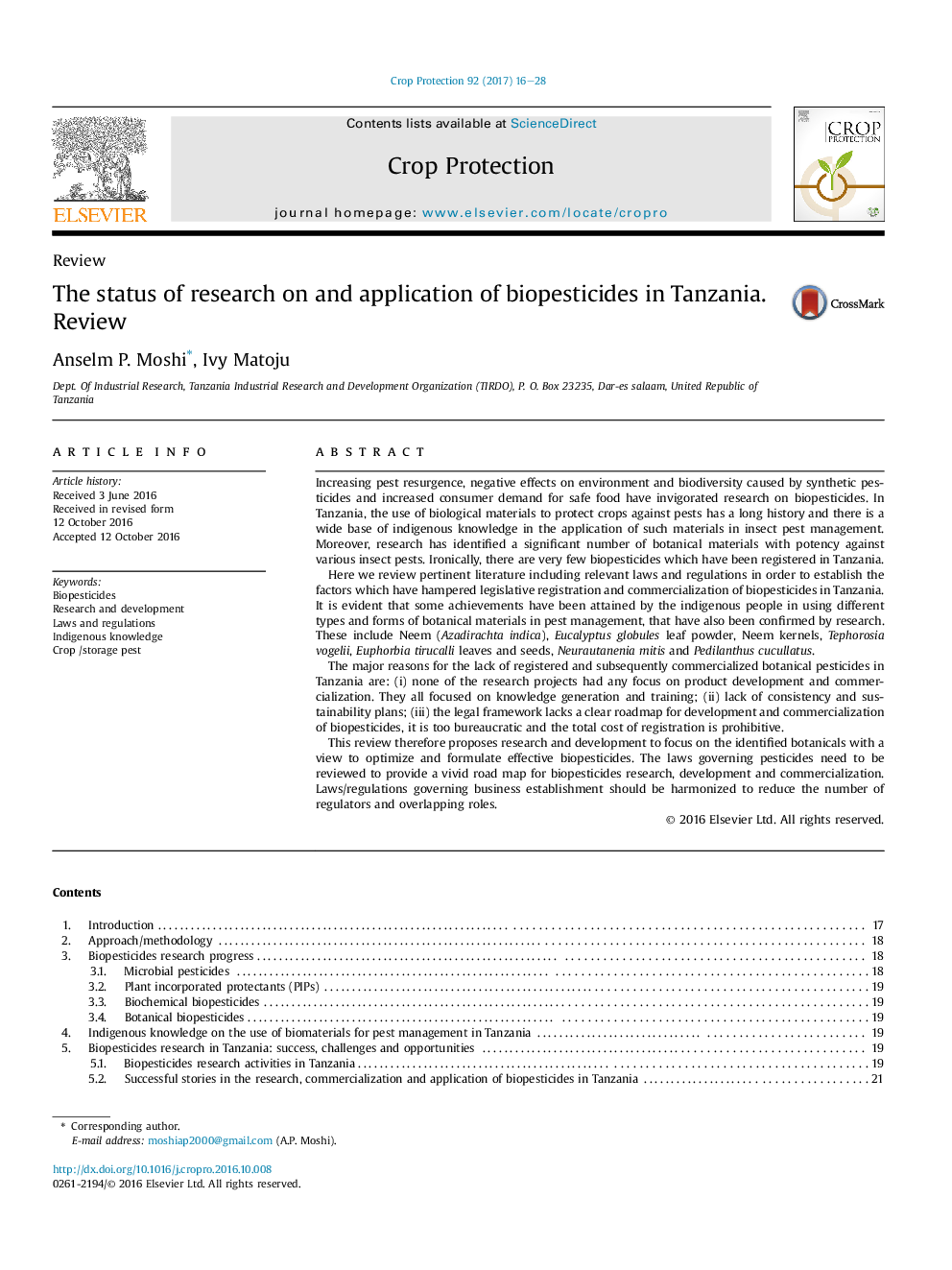| کد مقاله | کد نشریه | سال انتشار | مقاله انگلیسی | نسخه تمام متن |
|---|---|---|---|---|
| 4505504 | 1624295 | 2017 | 13 صفحه PDF | دانلود رایگان |
• Indigenous knowledge is paramount in biopesticides research and development.
• Effective botanical biopesticides have been identified and tested.
• Research and development to be focused on registration and commercialization.
• Laws and regulations governing pesticides thoroughly reviewed.
Increasing pest resurgence, negative effects on environment and biodiversity caused by synthetic pesticides and increased consumer demand for safe food have invigorated research on biopesticides. In Tanzania, the use of biological materials to protect crops against pests has a long history and there is a wide base of indigenous knowledge in the application of such materials in insect pest management. Moreover, research has identified a significant number of botanical materials with potency against various insect pests. Ironically, there are very few biopesticides which have been registered in Tanzania.Here we review pertinent literature including relevant laws and regulations in order to establish the factors which have hampered legislative registration and commercialization of biopesticides in Tanzania. It is evident that some achievements have been attained by the indigenous people in using different types and forms of botanical materials in pest management, that have also been confirmed by research. These include Neem (Azadirachta indica), Eucalyptus globules leaf powder, Neem kernels, Tephorosia vogelii, Euphorbia tirucalli leaves and seeds, Neurautanenia mitis and Pedilanthus cucullatus.The major reasons for the lack of registered and subsequently commercialized botanical pesticides in Tanzania are: (i) none of the research projects had any focus on product development and commercialization. They all focused on knowledge generation and training; (ii) lack of consistency and sustainability plans; (iii) the legal framework lacks a clear roadmap for development and commercialization of biopesticides, it is too bureaucratic and the total cost of registration is prohibitive.This review therefore proposes research and development to focus on the identified botanicals with a view to optimize and formulate effective biopesticides. The laws governing pesticides need to be reviewed to provide a vivid road map for biopesticides research, development and commercialization. Laws/regulations governing business establishment should be harmonized to reduce the number of regulators and overlapping roles.
Journal: Crop Protection - Volume 92, February 2017, Pages 16–28
